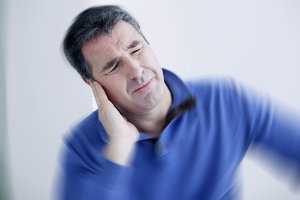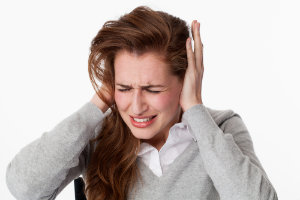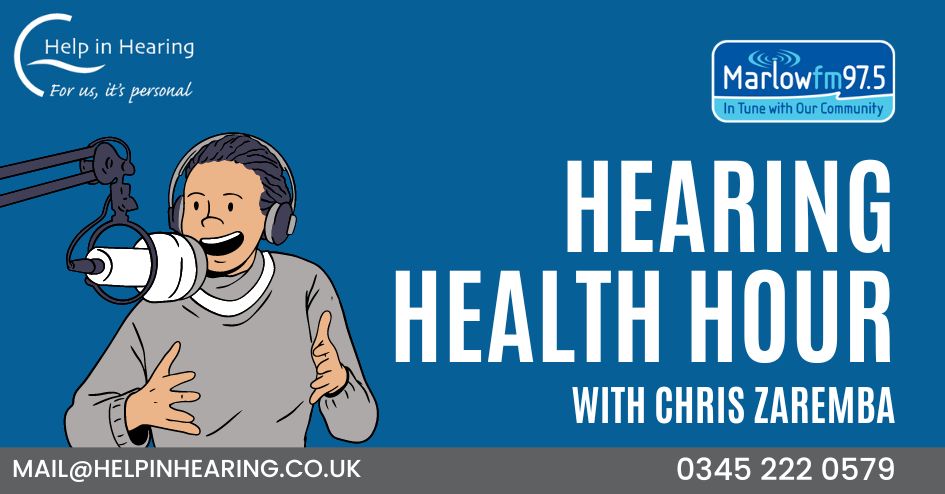
Things that can make tinnitus worse
 Tinnitus is a generic term that describes hearing noises such as buzzing, hissing, ringing, whistling, and whooshing when there is no external noise source. It is a very common complaint which affects approximately 15% of the UK population, and 250 million people worldwide. Tinnitus varies in degrees from one individual to the next and people’s tolerance to this condition also varies depending on its severity. Many sufferers simply learn to live with tinnitus, while others seek help. Although there is currently no cure for tinnitus, there are various ways of managing the condition. It is also worth knowing the sort of things that can aggravate or make tinnitus worse, and it is these factors that this post intends to address.
Tinnitus is a generic term that describes hearing noises such as buzzing, hissing, ringing, whistling, and whooshing when there is no external noise source. It is a very common complaint which affects approximately 15% of the UK population, and 250 million people worldwide. Tinnitus varies in degrees from one individual to the next and people’s tolerance to this condition also varies depending on its severity. Many sufferers simply learn to live with tinnitus, while others seek help. Although there is currently no cure for tinnitus, there are various ways of managing the condition. It is also worth knowing the sort of things that can aggravate or make tinnitus worse, and it is these factors that this post intends to address.
Medications that can worsen tinnitus
There are a number of medications that can bring about or heighten tinnitus noise. These include antibiotics, anti-depressants, aspirin, certain cancer medications, diuretics, and NSAIDs (Non-steroidal Anti-inflammatory Drugs). The higher the dose of these medications, the greater the risk of causing tinnitus. When the offending medication is taken away, in some instances the tinnitus reaction disappears. However, as a word of warning, you should always check with your doctor before ceasing to take any prescribed medication.
 Mental stress
Mental stress
Mental stress can also increase the perceived noise level of tinnitus. If you believe this to be the case in your situation, it can be helpful to find ways of relaxing to alleviate and manage stress, such as deep breathing techniques, physical exercise, or making use of biofeedback. Massage or alternative therapies such as acupuncture can often help.
Problems with your jaw
It is a little-known fact that your jaw shares certain ligaments and nerves with your middle ear. If your jaw “pops,” or it is painful when you eat or talk, these conditions could result in tinnitus.
 Loud external noise
Loud external noise
Loud noises can also heighten tinnitus noise or even create it in the first place. Many people who attend music concerts often come away with their ears still ringing from the high levels of volume. Using headphones at high volume or being in a noisy factory or work environment can also cause or make tinnitus worse.
Hearing loss
Around 80% of people who suffer from tinnitus also experience a degree of hearing loss, although they may be unaware of it.
 Other potential causes of tinnitus
Other potential causes of tinnitus
Tinnitus can originate anywhere between the inner ear and the brain and can be constant or intermittent, temporary or chronic. It can occur for no apparent reason or as the result of exposure to loud sounds, head or neck injuries and emotional distress. Other potential causes of tinnitus include a build-up of wax in the ear, infections such as colds, high or low blood pressure, sleep disorders, bad headaches and migraine. Alcohol and nicotine can also make tinnitus worse. Alcohol because it increases blood pressure, which could make you notice your tinnitus even more, and smoking nicotine as it causes a narrowing of the blood vessels, limiting the supply of oxygen to your ears.
Tinnitus support
The first step towards taking control of your tinnitus is to consult a professional, so that together, you can find the treatment plan that will work for you. We offer full tinnitus assessments to identify the most appropriate management tool for individual needs. We also run a BTA (British Tinnitus Association) recognised monthly Tinnitus Support Group which is facilitated by a trained Tinnitus Adviser. If you are interested in joining or know someone that would benefit, please contact us.
 Can I treat my tinnitus?
Can I treat my tinnitus?
A hearing care professional can help you manage your particular symptoms using a combination of education, counselling, and hearing aids which not only enhance your hearing but can also stream personalised sound relaxation through mobile phone apps.
What creates the perception of sound?
Although the causes appear to vary, experts believe that tinnitus results from damaged hair cells in the inner ear. The brain sometimes misinterprets reduced signals from the ear, resulting in a perception of sound — tinnitus — that isn’t really there.
Tinnitus support – where to find out more
If you are troubled by tinnitus you might value advice from a hearing specialist to first of all check if you have a hearing loss that needs treating or if there is another easily treatable cause, such as excess ear wax. This treatment can also help reduce tinnitus sounds.
If you are affected by tinnitus:
Read our page “Tinnitus explained“
Find out more about our Tinnitus Support Group for Marlow & Farnham Common and read about future events
Get in touch with us to make an appointment for a tinnitus assessment.


This Post Has 0 Comments